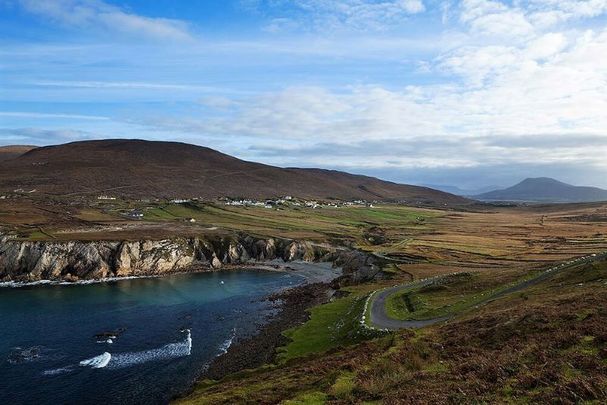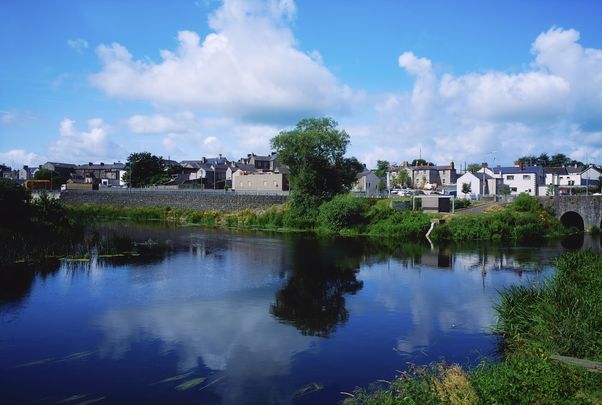Wednesday, August 28, 2024 Currently, 31 countries across Europe, Africa, Asia and the Middle East are in the the UK government’s ‘do not travel’ advisory list. Those planning to visit these regions should be aware that their travel insurance may not be valid, leaving them vulnerable in the event of an emergency. As global conflicts and security concerns escalate, the UK government has regularly updated its travel advisories to reflect the changing geopolitical landscape.
Here’s a detailed look at the countries on this list and the reasons behind their inclusion, based on information from government and official sources. Belarus Belarus is under a ‘do not travel’ advisory due to the ongoing political unrest and its involvement in the conflict between Russia and Ukraine. The situation remains volatile, with the risk of arbitrary detentions and limited consular assistance.

Kosovo While the UK Foreign Office has not issued a blanket ban on travel to Kosovo, it advises against all but essential travel to significant parts of the country due to ethnic tensions and sporadic violence. Travelers should avoid northern municipalities, including Mitrovica, where clashes between ethnic Serbs and Albanians have occurred. Russia The UK advises against all travel to Russia following its invasion of Ukraine and the subsequent sanctions.
The security situation is unpredictable, and there are significant restrictions on international flights. Additionally, the UK Government warns that travelers could face harassment or unjust detention. Ukraine Ukraine remains a ‘do not travel’ country due to the ongoing war with Russia.
The Foreign Office emphasizes the high risk of missile strikes, armed conflict, and the deteriorating infrastructure. Travelers are urged to leave Ukraine if it is safe to do so. Iraq Iraq is under a ‘do not travel’ advisory due to ongoing terrorism, armed conflict, and political instability.
The security situation remains highly volatile, with a significant risk of kidnapping, particularly in the northern and western regions. Iran The UK Government advises against all travel to Iran due to the risk of arbitrary detention and the volatile political climate. There have been numerous reports of foreigners being detained on dubious charges, and consular assistance is extremely limited.
The ongoing conflict between Israel and Hamas has led the UK to advise against all travel to large parts of Israel and the OPTs, including Gaza, the West Bank, and areas bordering Syria and Lebanon. The situation is highly unpredictable, with frequent exchanges of rocket fire and potential for further escalation. Lebanon Lebanon is under a ‘do not travel’ advisory due to the spillover from the Syrian conflict and internal political instability.
The Foreign Office warns of the potential for violent protests, and there is a significant risk of terrorism and kidnapping. Syria Syria has been a ‘do not travel’ destination for years due to the ongoing civil war. The UK Government emphasizes the extreme risk of terrorism, military conflict, and kidnappings.
The infrastructure is severely damaged, making travel dangerous and unreliable. Yemen Yemen is experiencing one of the world’s worst humanitarian crises, and the UK advises against all travel due to ongoing conflict, terrorism, and kidnapping risks. The security situation is dire, with limited or no consular assistance available.
Burkina Faso Burkina Faso is under a ‘do not travel’ advisory due to the escalating threat of terrorism and kidnapping, particularly in the northern and eastern regions. The security situation is fragile, with frequent attacks on civilians and military personnel. Cameroon The UK Government advises against all but essential travel to certain regions of Cameroon due to the high risk of terrorism and armed conflict, particularly in the Far North, North West, and South West regions.
Chad Chad is on the ‘do not travel’ list due to the threat of terrorism, civil unrest, and armed conflict. The security situation is particularly volatile in the Lake Chad Basin, where Boko Haram operates. The Central African Republic (CAR) is extremely dangerous, with the UK advising against all travel due to ongoing armed conflict, widespread lawlessness, and the risk of terrorism.
Ethiopia Ethiopia’s Tigray region and parts of the Amhara and Afar regions are under a ‘do not travel’ advisory due to ongoing conflict. The security situation is unpredictable, and there have been reports of ethnic violence and human rights abuses. Libya Libya remains unstable, with the UK advising against all travel due to the ongoing civil conflict, terrorism, and the risk of kidnapping.
The country is fragmented, with various armed groups controlling different regions. Mali Mali is on the ‘do not travel’ list due to the high threat of terrorism and kidnapping, particularly in the northern and central regions. The security situation is precarious, with frequent attacks on military and civilian targets.
Mauritania The UK advises against all but essential travel to certain parts of Mauritania due to the risk of terrorism, particularly in the eastern and border regions. Niger Niger is highly unstable, with a ‘do not travel’ advisory in place due to the threat of terrorism and kidnapping, especially in the regions bordering Mali, Burkina Faso, and Nigeria. Nigeria Nigeria faces severe security challenges, with the UK advising against all but essential travel to several regions due to terrorism, kidnapping, and armed conflict, particularly in the northeast and along the Niger Delta.
Somalia Somalia is extremely dangerous, with the UK advising against all travel due to the ongoing conflict, terrorism, and piracy. The security situation is dire, with limited or no consular assistance available. South Sudan South Sudan is on the ‘do not travel’ list due to the ongoing civil conflict and the high risk of terrorism and kidnapping.
The security situation is volatile, and there is widespread lawlessness. Sudan Sudan remains unstable following a military coup, with the UK advising against all travel due to the high risk of civil unrest, terrorism, and armed conflict. Western Sahara The UK advises against all but essential travel to certain parts of Western Sahara due to the risk of conflict between the Moroccan government and the Polisario Front, as well as the threat of unexploded landmines.
Haiti Haiti is under a ‘do not travel’ advisory due to the high levels of crime, civil unrest, and kidnapping. The security situation is extremely volatile, with frequent violent protests and armed gangs controlling large areas. Venezuela Venezuela faces severe political and economic instability, with the UK advising against all but essential travel due to the risk of crime, civil unrest, and the collapse of basic services.
Afghanistan Afghanistan is on the ‘do not travel’ list following the Taliban takeover. The security situation is highly unstable, with the risk of terrorism, kidnapping, and civil unrest. Myanmar Myanmar is experiencing significant unrest following a military coup, with the UK advising against all but essential travel due to the high risk of civil conflict, terrorism, and arbitrary detention.
North Korea North Korea remains isolated, with the UK advising against all but essential travel. The borders have remained closed since the COVID-19 pandemic, and the risk of arbitrary detention is high. Pakistan Pakistan is under a ‘do not travel’ advisory for several regions, particularly in the northwest and along the border with Afghanistan, due to the high risk of terrorism and kidnapping.
‘Do not travel’ list could result in severe consequences? The UK Government’s travel advisories reflect the complex and often dangerous geopolitical landscape. Travelers are urged to heed these warnings and stay informed through official government channels. Traveling to any of the countries on the ‘do not travel’ list could result in severe consequences, including invalid insurance and a lack of consular support in emergencies.
.



















